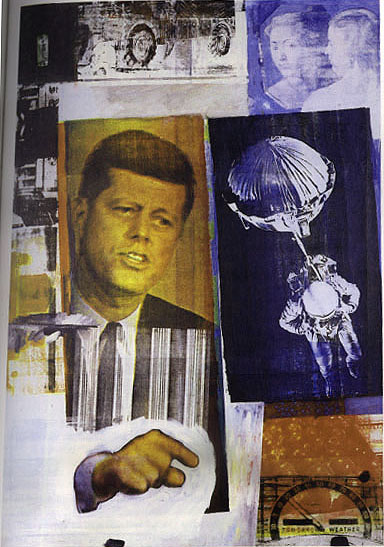Located in the Yale University Art Gallery.
Canyon (1959) Retroactive II (1964)
In Canyon, Rauschenberg "melded patriotic and homoerotic emblems, exploiting the possibilities of immediate visual transcription offered by photographic silkscreen printing" (Crow 16). The actual stuffed eagle present in the collage is a prime example of this double meaning. Not only is the eagle a symbol of America, but also of the god Zeus. In the latter case, Zeus is poised to abduct a boy, represented by the string and sandbag hanging off the canvas and also the picture in the canvas above the eagle of Rauschenberg's son. The abduction of a young boy by an older man is the reference to homoeroticism, yet it is contrasted well with the inherent patriotism of the eagle.
With this painting/silkscreen, Rauschenberg "became the first American to win the Grand Prize for Painting at the Venice Biennale, then the most comprehensive and prestigious international festival of contemporary art" (Crow 92). Therefore, this piece signifies the success and spreading of American pop art to Europe, which was in ways more open than America to it.